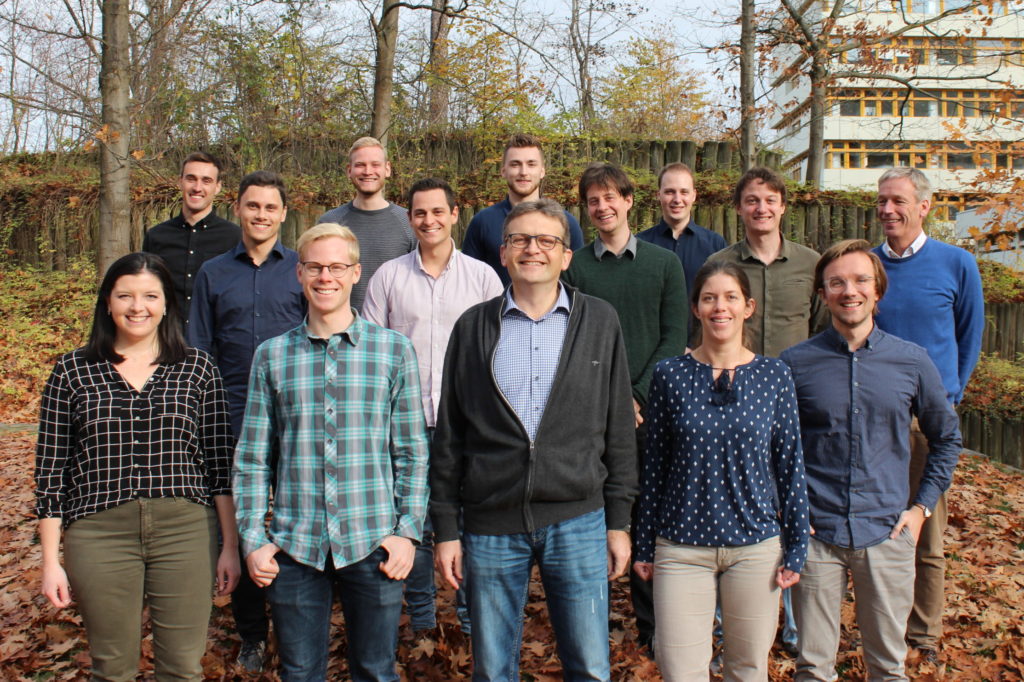Light Metals & Mechanical Testing

The Light Metals & Mechanical Testing group at the institute for general materials properties focuses on the one hand on the research of aluminium, magnesium and titanium alloys, especially for structural automotive and aerospace applications. In this context, activities are focused on determining the correlation between process parameters, the emerging microstructure and the resulting properties. In combination with research into dominant damage mechanisms, material/component properties can thus be specifically influenced and improved. Current research topics include wrought and cast aluminium alloys as well as titanium alloys. Other materials, such as copper alloys or electrical steel sheets, are also the subject of current work. In all cases, an in-depth understanding of the process-microstructure-property correlation, based on extensive material characterization, is essential.
Main aspects of the research include:
- Exploiting the potential of materials through a deeper understanding of process-microstructure-property correlation.
- Increasing the application limits and sustainability of materials through a deeper understanding of the process-microstructure-property correlation and the analysis of damage mechanisms.
- Optimization of materials with regard to special applications or requirements
- Extension of the basic understanding of deformation and damage mechanisms of metallic materials
In the field of mechanical testing, the focus is on both methodological issues and the determination of the mechanical properties and deformation behaviour of (mostly metallic) materials under a wide variety of load cases. In addition to deformation behaviour under quasi-static tensile and compressive loading, cyclic and/or time-dependent deformation behaviour is also investigated using fatigue and creep tests. For the characterization of the mechanical properties, a wide range of testing equipment is available at the institute. Specific load cases, such as fretting fatigue, are also considered.
In addition to publicly funded basic and applied research projects, partner projects are also carried out in cooperation with industry.
Prof. Dr.-Ing. Heinz Werner Höppel
Department of Materials Science and Engineering
Chair of General Materials Properties
- Phone number: +49 9131 85-27503
- Email: hwe.hoeppel@fau.de
Dominik Steinacker, M. Sc.
Department of Materials Science and Engineering
Chair of General Materials Properties
- Phone number: +49 9131 85-25240
- Email: dominik.steinacker@fau.de
Laura Huber
Department of Materials Science and Engineering
Chair of General Materials Properties
- Phone number: +49 9131 85-27478
- Email: laura.huber@fau.de
Nina Pfeffer, M. Sc.
Department of Materials Science and Engineering
Chair of General Materials Properties
- Phone number: +49 9131 85-27506
- Email: nina.pfeffer@fau.de
Patrick Ortner, M. Sc.
Department of Materials Science and Engineering
Chair of General Materials Properties
- Phone number: +49 9131 85-25240
- Email: patrick.p.ortner@fau.de
Annalena Meermeier, M. Sc.
Department of Materials Science and Engineering
Chair of General Materials Properties
- Phone number: +49 9131 85-27478
- Email: annalena.meermeier@fau.de
Nicolas Stein, M. Sc.
Department of Materials Science and Engineering
Chair of General Materials Properties
- Phone number: +49 9131 85-27478
- Email: nicolas.stein@fau.de
Clara Höll, M. Sc.
Department of Materials Science and Engineering
Chair of General Materials Properties
- Phone number: +49 9131 85-27475
- Email: clara.hoell@fau.de
Selina Freygang, M. Sc.
Department of Materials Science and Engineering
Chair of General Materials Properties
- Phone number: +49 9131 85-27501
- Email: selina.freygang@fau.de
TiAl6V4 (Ti-64) is one of the most commonly used alloys in aerospace industry. Nowadays, structural parts are milled from solid blocks. This results in a degree of machining of up to 96 %. Thus, aerospace industry is in need of an advanced technology, which improves the ecological footprint and the costs for structural parts. This becomes even more important as the market demand is increasing steadily.
→ more information
Extrusion profiles made from Al-Mg-Si alloys are used in car manufacturing as rods, beams and members as components for the car frame and body. For such safety components, the applied alloys need a high strength and a high degree of ductility at ambient temperature in order to not fail in a brittle but ductile manner and protect the passenger in the interior.
→ more information
The Institute I of FAU Erlangen-Nuremberg is working on the joint project TISTRAQ in cooperation with the project partners HEGGEMANN AG (HEG) and DYNAmore GmbH (DYN). The main objective of TISTRAQ is the development of a new quench forming process (TISTRAQ process) for the energy- and material-efficient production of Ti-6Al-4V sheet metal parts for aerospace applications. The sheet metal parts produced are expected to have improved mechanical properties compared to their initial state.
→ more information
→ more information
→ more information
→ more information
- , , , , , , , , , , , , :
Heterostructured materials: superior properties from hetero-zone interaction
In: Materials Research Letters 9 (2021), p. 1-31
ISSN: 2166-3831
DOI: 10.1080/21663831.2020.1796836 - , , , , , :
Hetero-deformation induced (HDI) hardening does not increase linearly with strain gradient
In: Scripta Materialia 174 (2020), p. 19-23
ISSN: 1359-6462
DOI: 10.1016/j.scriptamat.2019.08.022 - :
Revisiting “Steady-State” Monotonic and Cyclic Deformation: Emphasizing the Quasi-Stationary State of Deformation
In: Metallurgical and Materials Transactions A-Physical Metallurgy and Materials Science (2020)
ISSN: 1073-5623
DOI: 10.1007/s11661-019-05618-x - , , , , , :
Investigation of the run-in and corrosion behavior of a PEO-coated aluminum brake disc
10th International Munich Chassis Symposium (Chassis.Tech Plus) (Munich)
In: 10TH INTERNATIONAL MUNICH CHASSIS SYMPOSIUM 2019 (CHASSIS.TECH PLUS), WIESBADEN: 2020
DOI: 10.1007/978-3-658-26435-2_43 - , , :
The influence of near service environmental conditions on the corrosion and LCF behaviour of a beta-stabilized γ-TiAl alloy
In: Corrosion Science 175 (2020), Article No.: 108885
ISSN: 0010-938X
DOI: 10.1016/j.corsci.2020.108885








